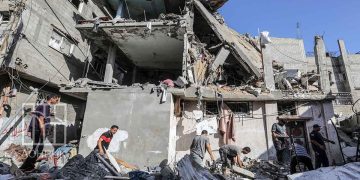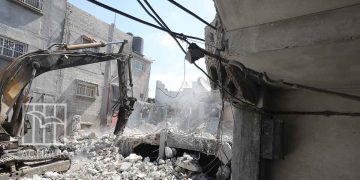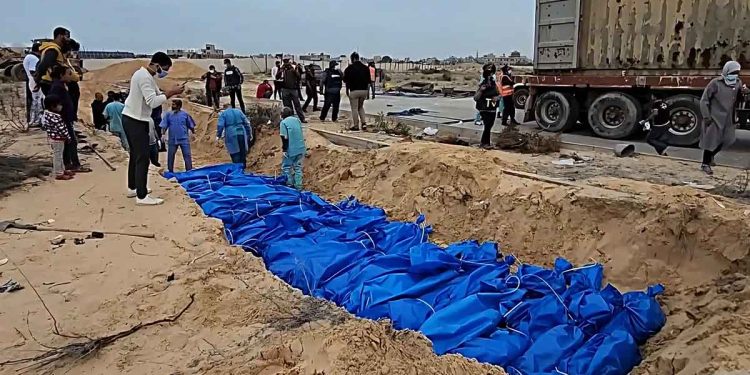In a stark reflection of Gaza’s deepening humanitarian catastrophe, the Ministry of Endowments and Religious Affairs announced on Wednesday that graves have run out across most areas of the besieged Strip. This comes amid the ongoing genocide carried out by the Israeli occupation for more than 21 months, which has left tens of thousands dead, most of them women and children.
The ministry stated that “the systematic targeting of civilians and continued acts of genocide coincide with the depletion of burial space in most areas of Gaza.” Since October 2023, Israeli forces have completely or partially destroyed more than 40 cemeteries, eliminating burial grounds in numerous districts and collapsing Gaza’s burial infrastructure.
Access to cemeteries in areas under Israeli military control is also being denied, worsening the grave shortage and exhausting the remaining space as the number of deaths from bombing, starvation, and denial of basic services continues to soar.
According to the ministry, construction materials, burial shrouds, and essential tools for grave preparation are being blocked from entering the Strip, making it impossible to bury the dead according to religious and humanitarian standards. Additionally, Israeli evacuation orders have turned much of Gaza’s land into temporary shelters for displaced civilians, further shrinking burial space.
Schoolyards and private homes have become emergency burial sites as bodies pile up in and around hospitals, with no resolution in sight and the international community turning a blind eye. The cost of preparing a single grave has reached between 700 and 1,000 shekels—an unaffordable sum for families who’ve lost everything.
Destroying cemeteries and denying burial rights is one of the most horrifying aspects of the genocide being waged against Palestinians in Gaza. Preventing people from burying their dead is not only a gross violation of human dignity, but also a systematic act aimed at erasing all signs of life and death.
This adds to a long list of documented crimes including indiscriminate killings, starvation, destruction of vital infrastructure, targeting of hospitals and schools, and the mass forced displacement of hundreds of thousands of civilians. These actions meet the legal definition of genocide: deliberate acts committed with the intent to destroy, in whole or in part, a specific population.
Residents say they are witnessing ongoing scenes of collective death. Families cannot find a place to bury their loved ones, often resorting to reusing old graves for multiple bodies. Images of decomposing corpses outside overwhelmed hospitals continue to circulate daily on social media, a chilling testimony to a disaster unfolding under global silence.
Since October 7, 2023, Israel has waged an all-out war on Gaza, resulting in over 191,000 killed and injured, with more than 11,000 still missing—most of them children. Starvation has claimed many lives, and hundreds of thousands have been forcibly displaced under catastrophic conditions.
As this war continues, and as Israel appears determined to erase every trace of life in Gaza, the grave crisis stands as a devastating symbol of collapse—and undeniable evidence of the scale of the crimes being committed against Palestinians in the worst humanitarian tragedy since the Nakba of 1948.



























